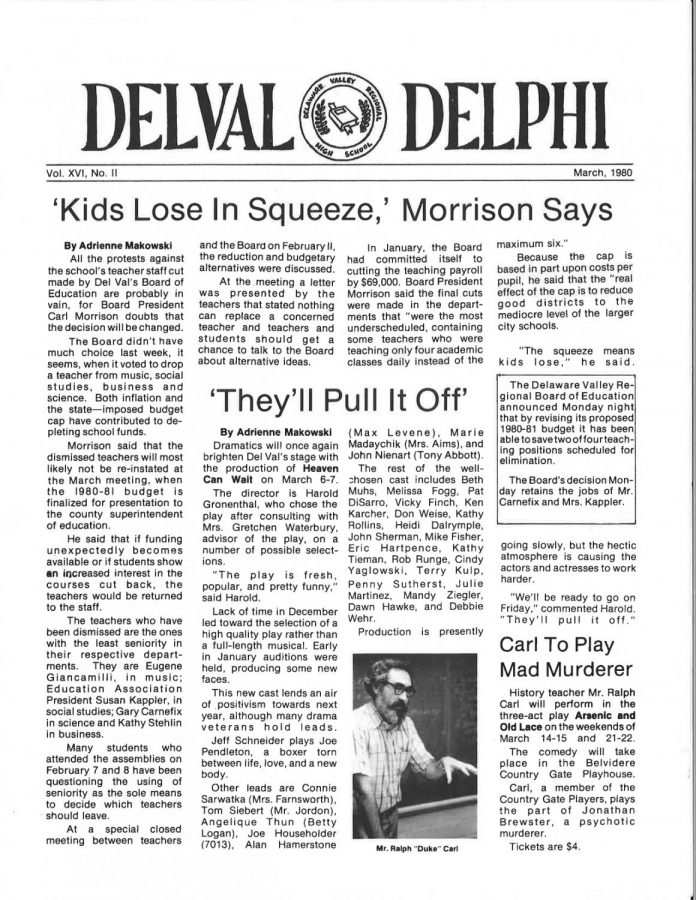Dress codes and their effect on girls
Molly Boetsch shares her concerns about the effects of societal pressures on female body image.
December 1, 2020
Despite many schools continuing to uphold the infamous “dress code,” the question still remains: are dress codes sexist and damaging to girls?
School’s dress codes are often much more strict for girls than they are for the boys, and they arguably put blame on girls by indicating that their clothing leads to distractions for boys. Dress codes send the message to teenage girls that their bodies are a problem and, therefore, need to be covered or hidden. Yet it shouldn’t be a girl’s problem if a boy is more fixated on her outfit than on his work.
Women already have body judgements and shaming to deal with on a regular basis, and calling extra attention to how they look can have a worse effect. Thirteen year old Addie Lyttle was dress coded at her school just for wearing a T-shirt, athletic shorts and sandals. “It made me feel like my body wasn’t acceptable,” Lyttle said.
There are some people like Angels Little, a Northview Middle School parent, who thinks the way that schools treat female dress codes is the start of society’s influence on women, adding to the shameful feelings they may experience. It makes girls highly aware of the parts of their bodies the school says needs to be hidden, like the midriff, the most common area that some schools have banned being shown.
Drawing attention to certain parts of the female body and insinuating that they need to be hidden can make girls feel like there’s something wrong with they way they look; that there’s something that needs to be “fixed.”
In extreme, yet common, cases, obsessing over what girls and women wear can lead to blaming victims of sexual assault. For example, it may be asked, “Well what was she wearing?” or saying, “She was asking for it, wearing that,” both of which are insulting and irrelevant. It makes the victimized woman feel like what happened was her fault or that she deserved it for dressing a certain way. In other cases, this fixation can lead to girls developing low self-esteem, depression, and eating disorders.
Women have always faced an extreme amount of pressure and judgement from society to be what is deemed as “perfect” from a young age. Making them feel uncomfortable in their skin and blaming them for boys’ behavior, as dress codes do, just adds to the damage much sooner in life.















































































Alexandra • Sep 2, 2023 at 10:11 am
Somerset brooks academy is the school i’m attending in san antonio Texas.I’m a sophomore student and we have to wear black polos w black or khaki bottoms.Girls were the reason we were enforced to getting a dress code again.So many of us hate it we’re dressed in black during the summer and it’s very hot.and everything written in this article is true to how us girls feel when we are put as the reason.We’re at fault for decisions boys choose when will people realize the boys need to be the ones that are putting girls in the situation we are put in the mindset we wake up to the stress on what we are allowed to wear because of how people see us how much we get judged it’s not right.So many schools are getting dress coded when we just want to wear a style that makes us happy.Now we go to school all looking the same, repeating the same routine everyday it’s gets exhausting it makes school feel like a judgement zone.This entire dress code situation brings our moods down and leads us to feeling like we are an item instead of a person.These schools act like they don’t see people outside of school wear the clothing they tell us not to wear.And that’s what creates another reason to school feeling like a prison to kids an unwelcoming place. I’ve heard it multiple times from so many people and if we think it can you imagine how many others are thinking the same or related.School is supposed to feel welcoming while being educated not shamed while educated.Because overtime it becomes that way.Dress code schools are hurtful targeted places for girls more then boys.
Lauryn Thompson • Feb 6, 2023 at 9:37 am
I hate my schools dress code suck because we can’t even show are back. 🙁
keyanna • May 16, 2022 at 10:32 pm
i feel bad becase im a girl and im in middle i have dress cobe i had on a crop top and black jeans i ask some boys if myoutfits wrong they all said no i feel like girls got more dress code then boy because boy in my school dress code is they can not pul they pant down a little bit my school is caver middle school